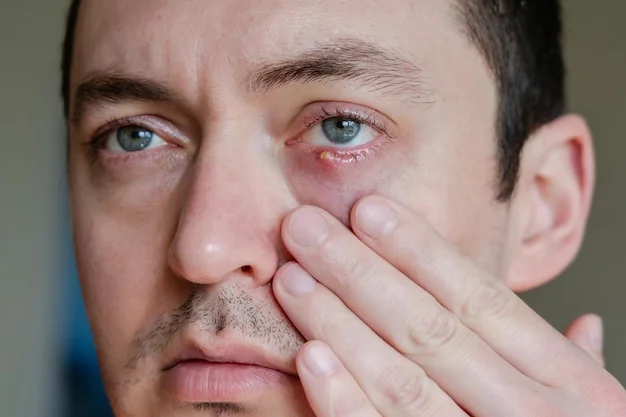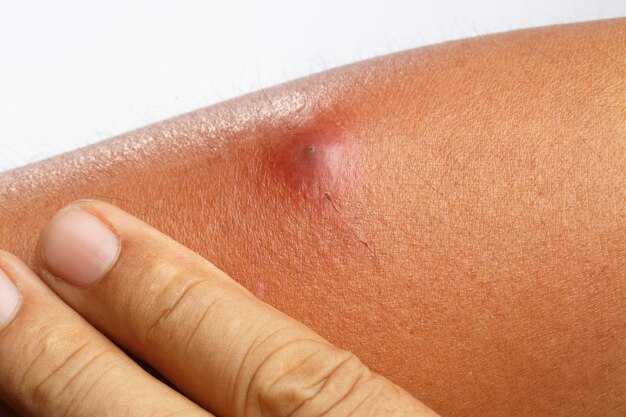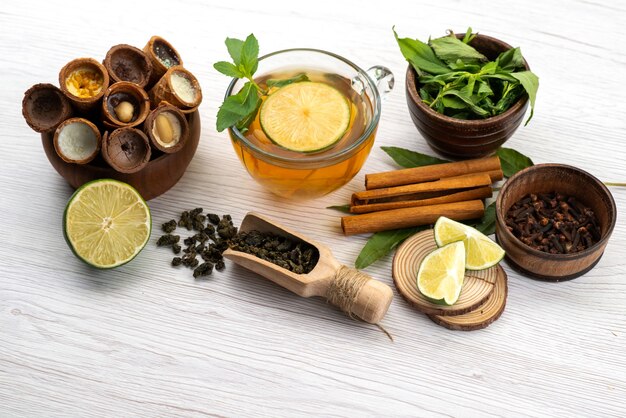Ayurvedic Treatment for Abscess – Natural Remedies to Promote Healing

Introduction to Ayurvedic Treatment for Abscess
An abscess is a localized collection of pus caused by infection, often resulting in pain, swelling, and inflammation in the affected area. In Ayurveda, abscesses are understood to occur due to an imbalance in the Pitta dosha, which is responsible for heat and inflammation in the body. An excess of Pitta leads to the accumulation of toxins (Ama) in the tissues, which can cause an abscess to form.
Ayurvedic treatments for abscesses aim to address both the root cause—imbalanced doshas—and the symptoms, including reducing inflammation, promoting drainage, and supporting the body's natural detoxification process. This holistic approach uses herbal remedies, external therapies, and dietary adjustments to treat abscesses naturally.
Historical Roots & Ayurvedic Significance
In Ayurvedic texts, abscesses are often classified as "Vata-Pitta Prakopa", a condition caused by the aggravation of both Vata (air and space) and Pitta (fire and water) doshas. Ancient Acharyas, including Sushruta and Charaka, described the use of natural remedies to treat abscesses, emphasizing detoxification, balancing the doshas, and supporting the healing process. The Ayurvedic approach to abscesses involves not only treating the localized infection but also addressing the overall imbalance in the body that leads to the formation of pus.
Key Ayurvedic Treatments for Abscess
1. Herbal Remedies for Abscess
Ayurvedic herbs are often used to reduce inflammation, fight infection, and promote the healing of abscesses. Some commonly used herbs include:
- Turmeric (Curcuma longa): Known for its strong anti-inflammatory and antimicrobial properties, turmeric helps in reducing swelling, pain, and infection. It also promotes wound healing and can be applied externally as a paste to accelerate the drainage of the abscess.
- Neem (Azadirachta indica): This herb has antibacterial, antifungal, and anti-inflammatory properties, making it highly effective in treating abscesses. Neem helps purify the blood and eliminates toxins from the body.
- Triphala: A combination of three fruits—Amla, Haritaki, and Bibhitaki—Triphala acts as a potent detoxifier, improving digestion and reducing the accumulation of Ama (toxins) in the body.
- Ginger (Zingiber officinale): Ginger has natural antiseptic and anti-inflammatory properties, helping to reduce swelling and improve circulation to the affected area.
- Giloy (Tinospora cordifolia): This herb strengthens the immune system, promotes detoxification, and helps fight infections by enhancing the body's natural defense mechanisms.
2. Topical Applications for Abscess
In Ayurveda, external applications are used to reduce inflammation and support the drainage of pus. Common topical treatments for abscesses include:
- Turmeric Paste: A paste made from turmeric and water can be applied directly to the abscess to reduce inflammation and help draw out the pus. Turmeric’s natural antibiotic properties can speed up the healing process.
- Neem Oil or Neem Paste: Applying a paste made from crushed neem leaves or using neem oil directly on the abscess can help disinfect the area, reduce swelling, and promote healing.
- Bitter Gourd (Karela): Fresh bitter gourd juice or a paste made from crushed bitter gourd can be applied to the affected area to reduce swelling and pain, as it has strong detoxifying properties.
3. Internal Detoxification with Ayurvedic Herbs
To support the body's natural detoxification process and balance the doshas, internal Ayurvedic treatments are essential:
- Aloe Vera Juice: Aloe vera is known for its cooling and soothing properties. Drinking aloe vera juice helps detoxify the body, balance Pitta, and promote healing from within.
- Guduchi (Tinospora cordifolia): Guduchi is known for its immune-boosting and detoxifying properties. It helps cleanse the bloodstream and supports the body’s natural defense against infections.
- Haridra (Curcuma longa): A potent detoxifier, Haridra is often used to cleanse the blood and balance Pitta. It can be taken internally as a powder mixed with warm water or milk.
- Cumin (Cuminum cyminum) and Coriander (Coriandrum sativum) Seeds: These spices aid in digestion and help eliminate toxins from the body, preventing the formation of abscesses due to an accumulation of Ama.
4. Panchakarma Therapy for Detoxification
Panchakarma, the Ayurvedic detoxification process, is often recommended to treat abscesses. Panchakarma helps purify the body, remove toxins, and balance the doshas. Some therapies that can support the healing of abscesses include:
- Vamana (Therapeutic Vomiting): Helps expel toxins from the body, especially those accumulated in the upper digestive tract.
- Virechana (Purgation Therapy): This therapy cleanses the body by stimulating the liver and gallbladder to release toxins, promoting the elimination of Ama.
- Abhyanga (Oil Massage): Regular oil massage with medicated oils can help balance Vata and Pitta doshas, promote circulation, and support the body’s detoxification process.
- Swedana (Herbal Steam Therapy): Herbal steam therapy can open the pores, expel toxins from the body, and reduce swelling, which is particularly beneficial for treating abscesses.
5. Dietary Modifications for Abscess Healing
Ayurveda emphasizes the importance of diet in healing abscesses and reducing inflammation. Some dietary recommendations include:
- Warm, Light, and Easy-to-Digest Foods: Foods that are light on the stomach, such as soups, broths, and steamed vegetables, can help support digestion and eliminate toxins.
- Avoiding Spicy, Oily, and Heavy Foods: These types of foods can aggravate Pitta dosha and contribute to inflammation and the formation of abscesses.
- Incorporating Cooling Foods: Since abscesses are often associated with excess heat in the body, incorporating cooling foods like cucumbers, coconut, and leafy greens can help balance Pitta and soothe inflammation.
- Increased Fluid Intake: Drinking plenty of water, herbal teas, and fresh fruit juices helps flush out toxins from the body and supports healing.
How Ayurvedic Treatment Works for Abscess
Ayurvedic treatments for abscesses work by addressing the root causes—Pitta imbalances, the accumulation of Ama, and toxins within the body. The combination of herbs, detoxifying therapies, and dietary adjustments works to restore the body’s natural balance, promote proper drainage, and accelerate healing. By targeting both the internal and external factors that contribute to abscess formation, Ayurveda offers a holistic and natural approach to managing and healing abscesses.
Frequently Asked Questions for Ayurvedic Treatment for Abscess
How does Ayurveda treat abscesses?
Ayurveda treats abscesses by addressing the root cause, which is often an imbalance in the Pitta dosha. Ayurvedic treatments include herbal remedies, topical applications, Panchakarma detoxification therapies, and dietary changes to promote healing, reduce inflammation, and prevent infection.
What herbs are most effective for treating abscesses?
Some of the most effective herbs for treating abscesses include Turmeric, Neem, Triphala, Ginger, and Giloy. These herbs have antimicrobial, anti-inflammatory, and detoxifying properties that support the healing process.
Can Ayurvedic treatment help prevent abscesses?
Yes, Ayurveda focuses on maintaining a balanced Pitta dosha and eliminating toxins from the body, which can help prevent the formation of abscesses. Regular detoxification, a balanced diet, and proper hygiene are essential for preventing abscesses in Ayurveda.
How long does it take to heal an abscess with Ayurvedic treatment?
The healing time for an abscess depends on its size, severity, and individual factors such as overall health. With consistent Ayurvedic treatment, including herbal remedies, external therapies, and dietary adjustments, healing can occur within a few weeks.
Is Ayurveda safe for treating abscesses?
Ayurvedic treatments are generally safe when used under the guidance of a qualified Ayurvedic practitioner. It is important to follow professional advice, especially for severe or chronic abscesses, to ensure proper care.
Can Ayurvedic treatment be used alongside conventional medicine for abscesses?
Yes, Ayurvedic treatment can complement conventional medicine, particularly when used for prevention, healing, and overall wellness. However, it is always advisable to consult with both an Ayurvedic practitioner and a healthcare provider for a holistic treatment plan.
What lifestyle changes should be made to prevent abscesses?
To prevent abscesses, it is important to maintain a balanced diet, practice regular detoxification, manage stress, and avoid exposure to infections. Adequate hydration, exercise, and maintaining a clean and hygienic environment are also key factors in preventing abscesses.
Conclusion & Expert Insights
Ayurvedic treatments for abscesses provide a holistic and natural approach to healing, addressing the root causes and promoting long-term wellness. By using a combination of herbs, topical applications, detox therapies, and dietary modifications, Ayurveda offers effective solutions for managing and preventing abscesses. As always, it is important to consult with a qualified Ayurvedic practitioner to receive personalized care and treatment tailored to your specific needs.
References & Further Reading
- Sharma, P.V. (1995). Dravyaguna Vijnana: A Textbook of Ayurvedic Pharmacology.
- Lad, V. (2002). Ayurveda: The Science of Self-Healing.
- Sushruta Samhita: The Surgical Compendium of Ayurveda.
- National Institute of Ayurveda:
कोई और प्रश्न हैं?
आयुर्वेदिक डॉक्टर से एक प्रश्न पूछें और मुफ़्त या सशुल्क मोड में अपनी चिंता की समस्या पर ऑनलाइन परामर्श प्राप्त करें।
2,000 से अधिक अनुभवी डॉक्टर हमारी साइट पर काम करते हैं और आपके प्रश्नों की प्रतीक्षा करते हैं और प्रतिदिन उपयोगकर्ताओं को उनकी स्वास्थ्य समस्याओं को हल करने में मदद करते हैं।



